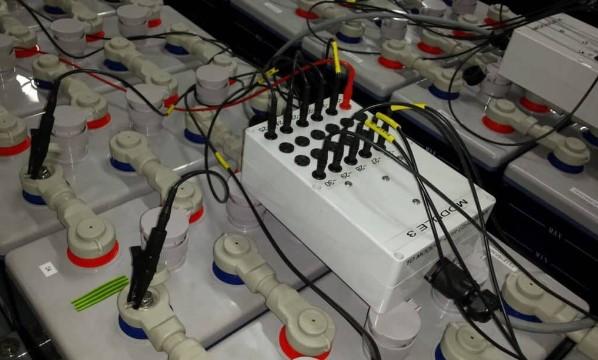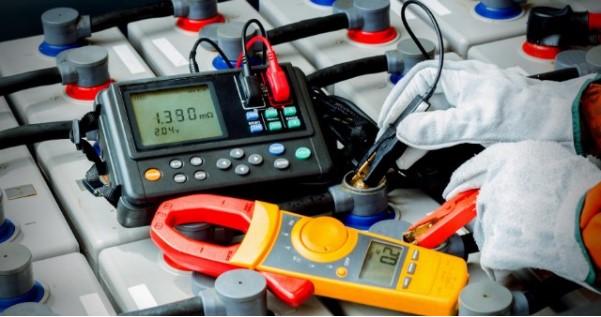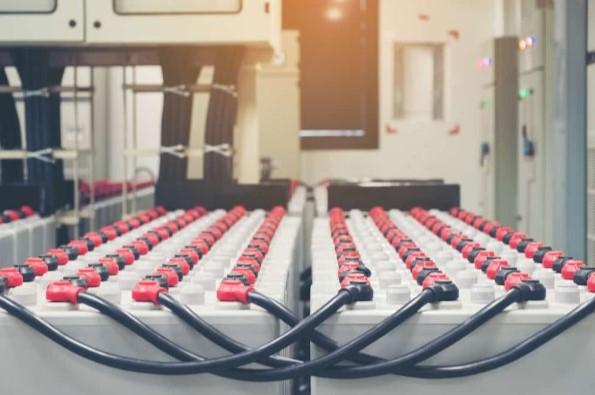Whenever you operate a power plant, you want to make sure that the equipment is operating efficiently and that it can reliably produce power under all conditions. A reliable test method for this is a battery testing system. With increasing usage of renewable energy in recent years, there has been an increase in the number of power stations with batteries to store excess energy from solar panels or wind turbines.
Batteries are also widely used in various other industrial applications such as backup storage for autonomous and electric vehicles. The need for regular battery testing is therefore higher than ever before. In this blog post we will explore why you need a battery testing system, what type of battery testing system you should have, and the different types available on the market today.
What is a power station battery and why is it important to test them?
A power station battery is a collection of batteries that are connected in parallel to store excess energy during periods when the power plants cannot produce a lot of energy. This could be because the power plants’ turbines are not spinning, or because the sun isn’t shining brightly enough to charge up solar panels.
Power station batteries are used widely in various applications such as backup storage for autonomous and electric vehicles. The need for regular battery testing is therefore higher than ever before. In this blog post we will explore why you need a battery testing system, what type of battery testing system you should have, and the different types available on the market today.
The benefits of regular testing
Regular battery testing is important to make sure your power station is running efficiently and reliably. If you have a system that doesn't need regular testing, it's possible for the battery to not be charging or discharging properly. This can cause your power station to function improperly, which could end up causing an accident at the plant. Or in the case of renewable energy storage systems, it could cause them not to work as desired. Regular battery testing allows you to avoid these problems before they happen.
When it comes to running an industrial facility, there are a lot of moving parts that need to work together smoothly. One important component is your battery system. Industrial batteries are typically large and expensive, so it's crucial that they are properly maintained. Regular testing is one way to ensure that your battery system is in good working order. Here are some benefits of regular testing:
- It can identify potential problems before they cause downtime.
- It can help extend the life of your batteries.
- It can save you money by avoiding unexpected repairs or replacements.
- It can give you peace of mind knowing that your system is operating safely and efficiently.
If you're not already doing so, we recommend adding regular battery testing to your maintenance routine.It's a simple and effective way to keep your operation running smoothly and avoid costly disruptions down the line. Thanks for reading!
By ensuring optimal operation of your power plant, you will also ensure higher performance under all conditions and fewer system breakdowns locally in your plant. To maintain maximum efficiency and reliability, it's best to get a battery test system that integrates with your existing monitoring systems so that you only need one device instead of two or three if each unit is tested separately.
For example, if your backup generator is monitored by VFDs (variable frequency drive), they would automatically know when the generator needs restarting during a load changeover because of battery failure.
How to test your power station battery
A battery testing system is an essential tool for any power station, with the first step being to identify a specific type of battery you are dealing with. There are two types of batteries that many power stations have: lead-acid and lithium ion. Lead-acid batteries are the cheapest and least reliable, with life expectancy ranging from 1 to 3 years. Lithium ions have a much longer life expectancy, sometimes lasting as long as 15 years.
Now that your battery type has been identified, it’s time to find out how you should test it. There are various types of tests available, including online tools and manual tests. The online tools include battery capacity estimation, while manual tests include a load tester and a float level tester. The load tester measures the full charge or discharge capability of your battery under different loads on its terminals while the float level tester measures the total capacity at a certain state of charge (e.g. 100 percent).
Depending on your needs, one particular test may be more suitable than another; for example, if you need to know how long your battery will last before reaching a certain point of degradation, then using an online tool would be appropriate. However, if you want to find out more about what happens when a small amount of current is applied through the terminals in order to determine whether or not there is any potential for short circuit and what damage this could cause then a manual test would be more suitable than an online tool.
Tips for prolonging the life of your battery
Batteries can only be expected to last, on average, around three years before they need replacing. Part of the reason for this is that they operate at higher temperatures than other types of batteries, meaning that they degrade much faster. One way to lessen the amount of damage done by heat is to make sure that each battery has an adequate cooling system installed.
However, if your power plant isn't in use during the summer months, you will still need a battery testing system to make sure that the equipment is functioning properly. A reliable battery testing system allows you to see how much energy the battery stores and what its capacity is like so you can work out when it should be replaced.
The best time for battery testing is once every year or when problems arise in the power station's operation. If your battery testing system alarms have gone off too many times without any improvements being made, then it may be time for a new one.
When to replace your battery
Batteries can become damaged, worn out or corroded over time. This means that periodic testing of the battery is necessary to ensure that it is functioning properly. For example, if you can detect a change in the output from your battery when it is connected to an ammeter, this may indicate that there is something wrong with the battery.
You will also want to periodically check how much charge the battery has left before it is exhausted so you don’t run out of power during an emergency situation. Additionally, you will want to test your batteries periodically as they age. As a rule of thumb, check your batteries every five years – but check them more often if you experience any unusual behaviour such as excessive vibration or self-discharge (when the battery leaks electricity).
Why it's important to have a backup power source in case of an emergency
A battery is merely a device that stores electrical energy, which can be used in the form of electricity or chemical fuel. When a power plant needs to produce power on demand, it uses the mechanical energy stored in the batteries. For example, when hydroelectricity plants need to produce power quickly, they need a way to store excess water and release it as needed. This requires them to use storage devices such as flywheels and pumps. If these devices fail or are not turned on when needed, the result would be an unexpected peak in power production and/or an inability to store excess water for later use.
Since most power plants are unable to store excess water for later use without a battery system, when you rely on batteries for your backup power source you have nothing but time until your backup generators kick in if something goes wrong with your battery system during operation. In the event of an emergency where no other backups exist, you could lose all of your equipment due to a single problem with your battery system.
FAQs about power station batteries
What is the purpose of battery testing? A battery testing system is used to ensure that batteries are in good working order and can be used safely. Batteries are typically very expensive, so it’s important to know when they need to be replaced. It also helps to understand how long a battery will last. The process of checking the performance of the plant equipment by using a battery system for these purposes is called load bank testing.
Batteries are a vital part of our power infrastructure, and proper maintenance is essential to keeping them working properly. Regular power station battery testing is so important to maintaining a safe and reliable energy supply. batteries are subject to degradation and wear and tear, so it is important to ensure that they are regularly tested and replaced as necessary. Testing also allows for early detection of problems that could lead to power outages or other disruptions. This helps prevent outages and keep the power flowing smoothly.
Do you need experts to test your power station batteries? We recommend Jpac Batteries. They are a team of experienced professionals who will work with you to develop a testing schedule that meets your needs and keeps your batteries in top condition. Contact them today to learn more about other battery testing services and how they can help you maintain a reliable power supply for your business or facility.



























